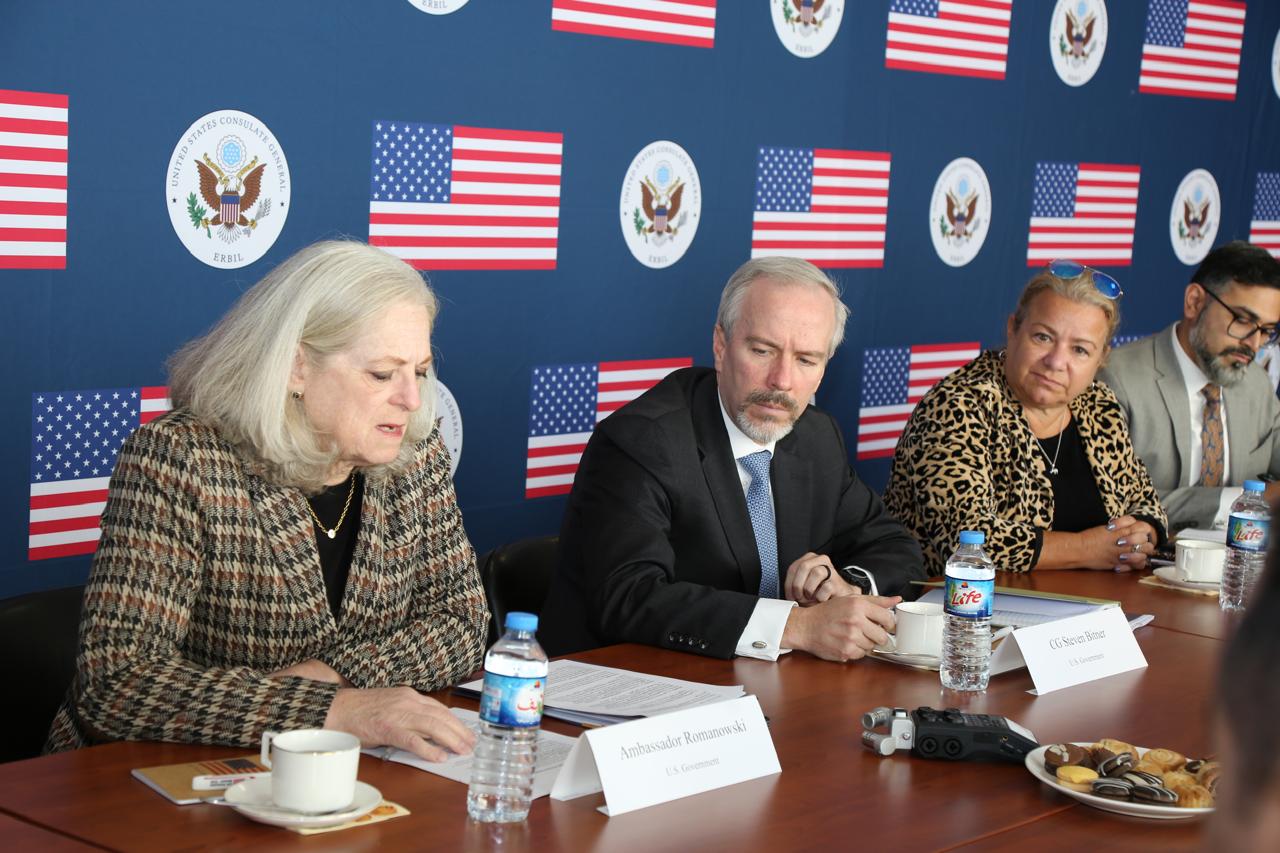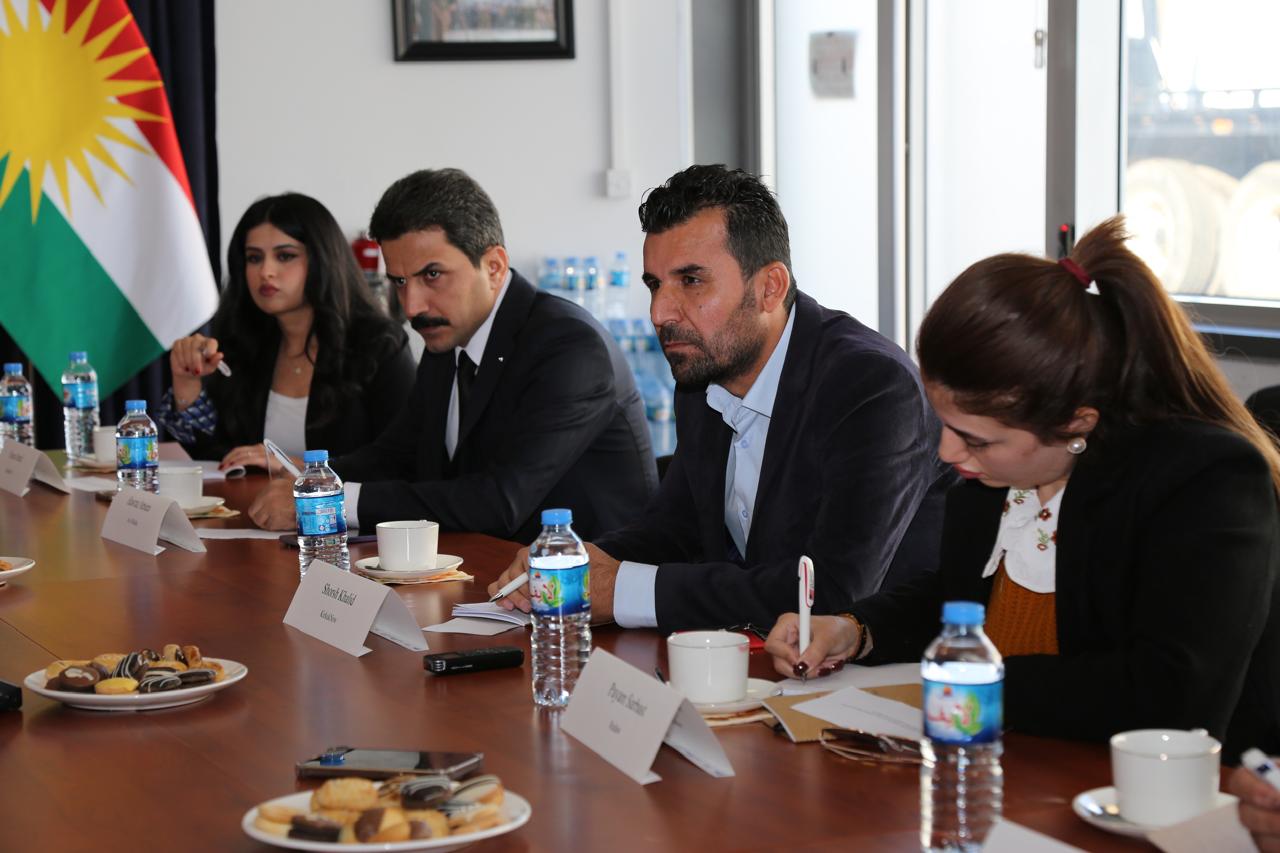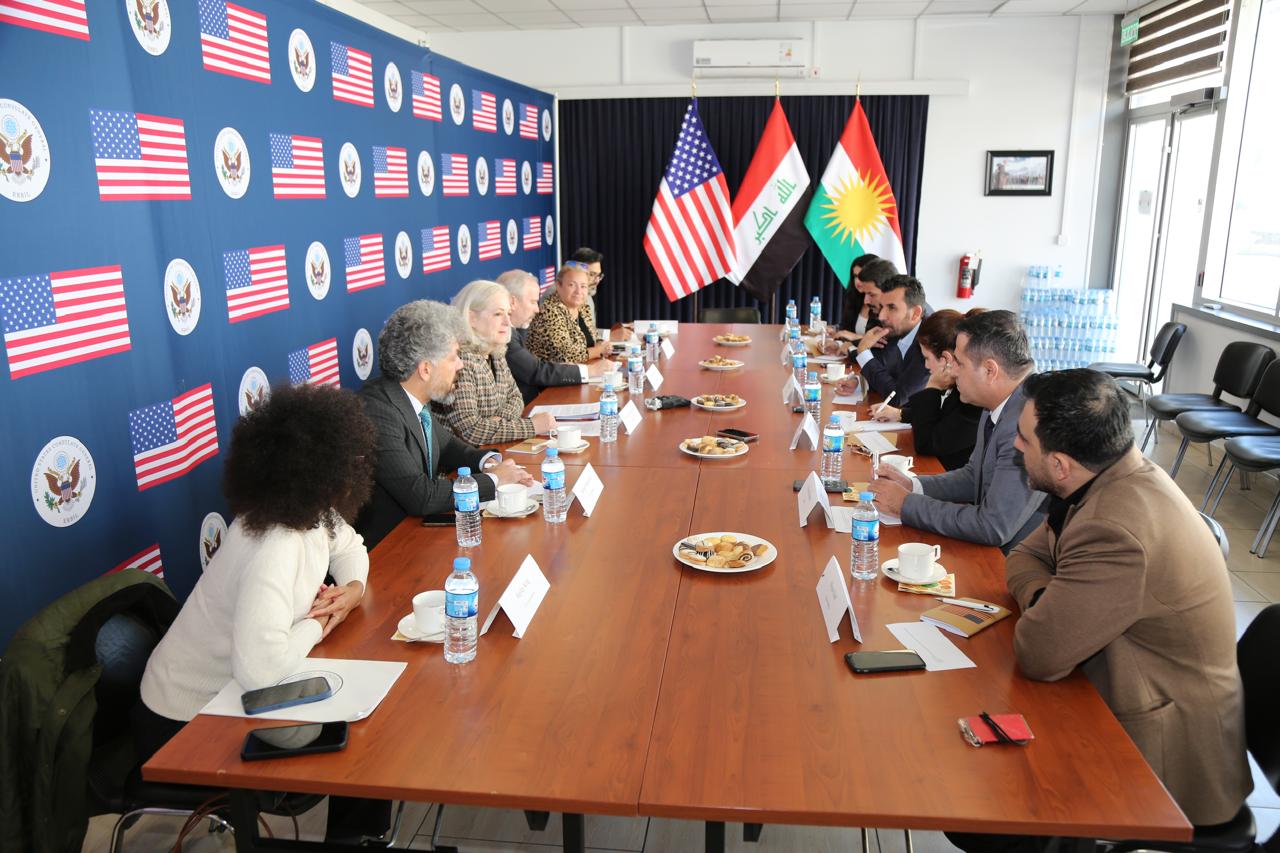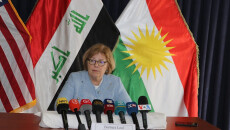The United States US Ambassador to Iraq says the failure to implement the Sinjar agreement is a matter of concern and the Islamic State in Iraq and in Syria ISIS still poses a threat.
Ambassador Alina Romanowski said this during a press conference held at the US Consulate General in Erbil on Saturday November 30, 2024.
"Along with security and stability throughout Iraq, we believe it is important to see progress on issues related to human rights, freedom of expression, the rights of refugees and minorities, these are important and we want the rights of communities throughout Iraq.
The press conference coincided with the completion of her mission as US Ambassador to Iraq.
“Pleased to participate in an interview with IKR (Iraqi Kurdistan Region) media outlets to discuss U.S. priorities for strengthening our bilateral relationship with Iraq,” she posted on X platform.
“Proud to support the role of a free and independent press in the IKR and encourage full implementation of the IKR press law and access to information law.”
The local and international organizations, human rights advocates members of the Iraqi and Kurdistan parliaments MPs continuously express their grave concern that the journalists and the freedom of press are increasingly under threat all over Iraq including the IKR.
Almost 249 violations were registered against journalists in the IKR last year, according to the Metro Center for the Protection of Journalists' Rights.
'ISIS is still a threat to the security of Iraq'
"ISIS is still a threat to the whole if Iraq so the issues of stability, security and threats should be continuously coordinated,” ambassador said in reply to a question by Shorsh Khalid, editor-in-chief of KirkukNow, about their views on the current situation in the disputed territories, as well as the return of displaced and minority rights.
"We announced on September 27 that we would end the military presence of coalition forces in the next two years, which means that both the Iraqi and Kurdistan Regional governments must continue to coordinate on this issue, and we encourage the unity of the Peshmerga forces to face the threats."
'We are worried about Sinjar'
The US ambassador to Iraq said she believes the implementation of Shingal agreement guarantees stability and security and the return of the displaced.
“The US has talked to the Iraqi and Kurdistan Regional Governments about implementing the agreement. We are concerned it has not yet been implemented it. We constantly emphasize its implementation.”
The Shingal Agreement was concluded between the federal government and the KRG to reorganize the administrative, security, and service sectors yet its provisions have not yet been implemented.
"We know that the agreement is difficult to implement. What concerns us is that we have played a role in bringing together the parties that can participate in its implementation. There are many different opinions on the agreement and some parties ask for its amendment,’ she added.
“Let us make sure that the security of Sinjar is under the authority of the federal government and the local police. The new mayor has not yet taken office despite his appointment.
Shingal District (120 km west of Mosul) is a disputed area between Baghdad and Erbil within Nineveh Province. It is home to about 334,000 people, over 91,000 of whom live in the center of the district, home for the non-Muslim Ezidi community. IS militants took control of Shingal on August 3, 2014, and recaptured it on November 13, 2015. Thousands of Yazidis were kidnapped, killed, displaced and the city was destroyed.

In May 2023, Barbera Keaf, the United States US Assistant Secretary of State for the Bureau of Near Eastern Affairs, visited Iraq to discuss issues related to religious and ethnic minorities.
“She emphasized the importance of the Sinjar agreement with the Iraqi government and the KRG and encouraged the Iraqi government to invest and reconstruct the area where the minorities live in order to encourage the return of the displaced to their home towns by restoring stability and security,” US ambassador said.
Sinjar has two administrations and more than eight security forces and armed groups, while the devastation of the war still remains, and thousands of families from the district live in displacement for absence of security, public services and reconstruction.
The extremist militants of the Islamic State of Iraq and Syria ISIS took over the district of Sinjar in August 2014, killing more than 1,293 Yazidis and kidnapping 6,417 members of the religious community. According to the Kurdistan Regional Government KRG, 2,600 of the abductees are still missing.
"Protecting religious and ethnic minorities is our priority"
The disputed territories extend from Khanaqin in the west on the borders with Iraq up to Shingal in the west of Iraq on the borders with Syria. These areas are home for minorities such as Christians, Ezidis, Shabak, Kaka’is Mandeans and Others.
"Since 2018, the United States has provided $500 million in assistance to communities affected by the ISIS war, especially those facing genocide," she added.
"Elections were free of fraud"
"The security of the Kurdistan Region is important for the whole of Iraq... After the elections, it is time to form a unified Kurdistan Regional Government to resolve their issues with the Iraqi government through dialogue," she said.

Nechirvan Barzani, the Iraqi Kurdistan Region President IKRP, appointed December 2nd for the first meeting of sixth session of Kurdistan Regional Parliament. Kurdistan Democratic Party (KDP) came first in October 20 elections, winning 39 seats, followed by decades rival and partner Patriotic Union of Kurdistan (PUK) with 23 seats and the New Generation third with 15 seats.
"The election was free from fraud in every sense and it was a very good and fair election," US ambassador said. "One issue that we can say we only interfered in some ways was the issue of determining the date of the election.”
"Freedom of expression has declined"
According to Metro statistics for 2023, the 249 violations were committed against 247 journalists, including 134 cases of obstruction and discrimination, 38 cases of confiscation of journalistic equipment, 37 cases of detention without a court order, 27 cases of attacks, threats and insults.
Controversially, the Iraqi Kurdistan Union of Journalists (KUJ) has reported 62 cases of violations against journalists across 2023.
Regarding the freedom of press and expression, Romanowski said the free media in the Kurdistan Region was previously known to be very strong.
“The Kurdistan Regional Government had a good reputation, but unfortunately we see a decline in freedom of expression and press by the Kurdistan Regional Government (KRG).”
“We, as the United States, continue to support freedom of expression and the press. We are in constant dialogue with the Kurdistan Regional Government and various media outlets on this issue. We are against confiscation of equipment without official notice. The KRG is in charge of giving full information to journalists, especially on the issue of transparency.”






